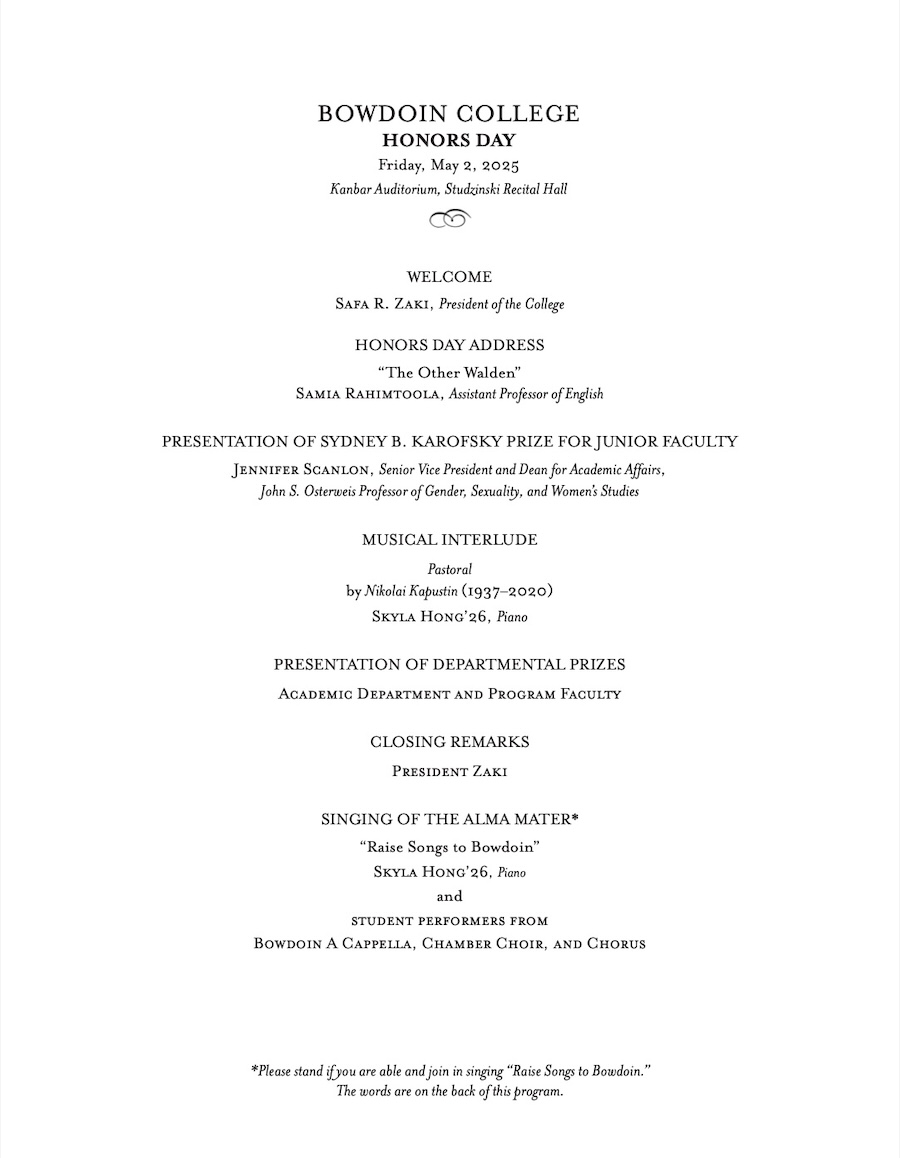Bowdoin Celebrates its Student Scholars in End-of-Year Ceremony
By Bowdoin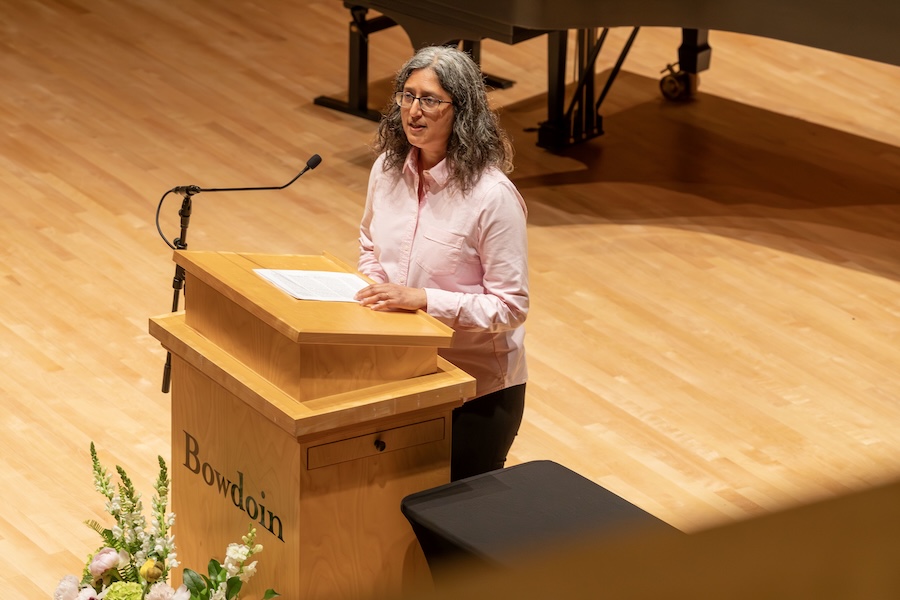
Dean for Academic Affairs Jennifer Scanlon then introduced the event’s keynote speaker, Assistant Professor of English Samia Rahimtoola.
In accordance with Bowdoin tradition, the winner of the Sydney B. Karofsky Award for Junior Faculty delivers the event's address. Based on student evaluations, the Karofsky prize is presented to an outstanding junior faculty member who demonstrates a great ability to impart knowledge, inspire enthusiasm, and stimulate intellectual curiosity.


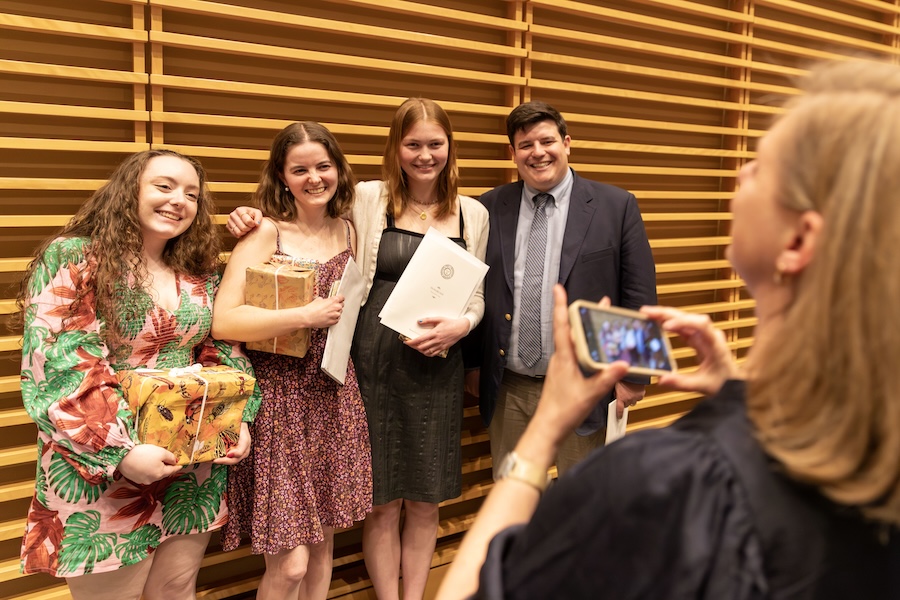









After acknowledging Rahimtoola's forthcoming book, Poetry in the Age of Sustainability: Race, Nature, and Nation on Spaceship Earth, under contract with the University of Iowa Press's Contemporary North American Poetry Series, Scanlon noted that Rahimtoola's keynote address “emerges from many years of her reading and teaching Henry David Thoreau.”
Rahimtoola began her remarks by explaining that her talk's title, “The Other Walden,” was both a reference to Henry David Thoreau's Walden—her "favorite book”—and also to a kind of utopian academic community, like the one attainable at Bowdoin.
Read “The Other Walden,” by Samia Rahimtoola.
“I hope to shift our understanding of Walden from a pond just outside Concord, Massachusetts into an emblem of the free, spirited, and engaged inquiry that you have devoted yourself to here at Bowdoin,” Rahimtoola said to the students. “As we come together to celebrate your accomplishments, I would like us to reflect on that education, and how each of you will find ways to put it into practice long after you have graduated.”
She went on to suggest that Thoreau did not retreat to his pondside cabin to leave a distressing society—at the time, the country was tearing itself apart over slavery—but rather to carve out a space for contemplation within it. Walden for Thoreau, and Bowdoin for students, “is not a sanctuary outside of society and history, but rather a space of temporary retreat that fortifies further engagement with it.”
“One of the reasons I love to read is that when we open a book, the world we live in comes to seem less fixed and more open to change. ”
—Samia Rahimtoola
Reading, thinking, writing, observing nature—these all “lay the imaginative groundwork for the world we would like to bring about. Each of us is a poet when we enter the unknown guided by the reservoir of creativity we hold within,” she said.
After “living deliberately” by Walden Pond for about two years, Thoreau, a staunch abolitionist, left for “civilized life again,” claiming “that the intellectual and moral practices he refined at Walden would remain available to him long after they left, as they will for you,” Rahimtoola said.
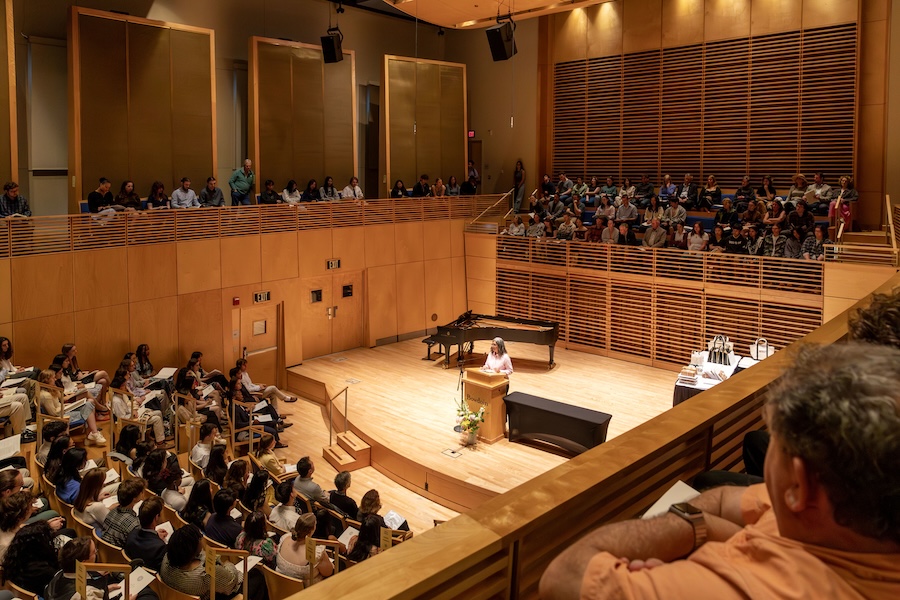
Some might dismiss intellectual and moral endeavors, such as those undertaken by students and scholars at academic institutions, as a luxury—or even a threat. But Rahimtoola said that they are vital, a necessity. “As we have seen, swift, unthinking actions can inflict tremendous suffering on workers, families, students, immigrants, and the environment,” she said.
“Every day, students, professors, and staff wake up and renew our devotion to the very educational enterprise that is being constructed as a threat, rather than a strength, of this country,” she remarked.
“I...emphasize the transgressiveness of thought, the real danger it poses to the structures and systems that so often pass as a brute fact of our world. ”
—Samia Rahimtoola
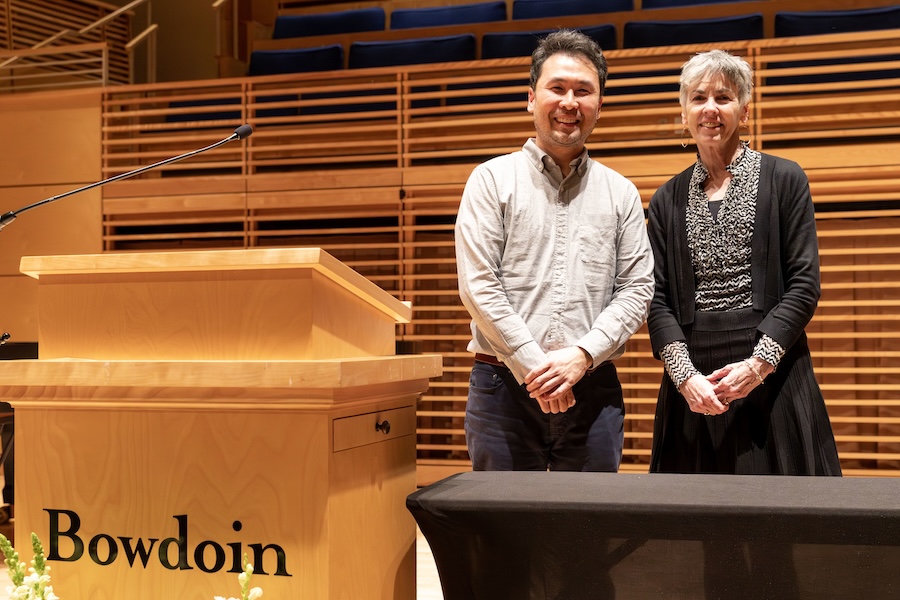
Following Rahimtoola's address, Scanlon announced the winner of the 2026 Karofsky Prize: John Kim, Assistant Professor of Asian Studies, a scholar of comparative literature working at the intersection of literature, science, and philosophy and across modern East Asia (Korea, China, Japan) and Europe.
The musical interlude this year, Pastoral, by Nikolai Kapustin (1937–2020), was performed by Skyla Hong ’26 on piano.
Faculty chairs then presented departmental and program prizes to students in recognition of their scholarly accomplishments. See the complete list of honorees.
To conclude the evening, singers from Bowdoin a cappella groups, chamber choir, and chorus led the audience in “Raise Songs to Bowdoin.”
*The award is generously funded by members of the Karofsky family, including Peter S. Karofsky ’62, Paul I. Karofsky ’66, and David M. Karofsky ’93.
Photos by Andrew Estey
